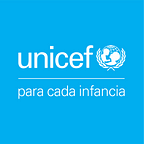A thirst for knowledge
Secondary Education
Mirna Ixcanil is a 24-year-old indigenous woman from the Achí ethnic group. She lives in a remote village inhabited by about 20 families. Her case is exceptional, because it is different from that of most indigenous adolescents and young women in the country: she was able to complete high school and attend college.
The average duration of schooling in rural communities in Guatemala is only 3.3 years. Indigenous girls and adolescents are the ones most affected by discrimination, poverty and the lack of access to public education. Out of ten indigenous girls, only six finish elementary school; two finish high school and one goes to college. Many of them are denied an education because they are female and due to certain distorted social and cultural norms that force them to take a partner or get married early and have children, abandoning school early and forever.
Despite the enormous cultural and social pressures, Ixcanil decided not to marry young and to delay starting a family, because her priority is to study and excel. She has understood this clearly since she was a child. Her parents always helped and encouraged her to continue learning.
She is now a schoolteacher in her community and she studies Pedagogy on Saturdays at a university. In order to attend classes, Mirna has to walk for half an hour among the hills and then ride a bus for two hours. When she graduates, she wants to carry out graduate work and get a master’s degree. Ixcanil is proud of her culture and likes living in the community where she was born. She lives at home with her father, two siblings and nephews and nieces. They all pitch in at home, cleaning, cooking, taking care of the younger children and carrying out family activities. Every evening, after things quiet down, when all household chores are done, Mirna hits the books, sometimes tired and sleepy, but always happy.
UNICEF promotes culturally relevant, complete, quality education for all girls, boys and adolescents. UNICEF advocates for increased investments in education, especially for indigenous girls and adolescents, and promotes inclusive educational alternatives. UNICEF and its partners also empower women so they can help girls and adolescents stay in school and reach academic success.
Ixcanil has had to swim against the current. Sometimes her opinions and decisions are not well regarded by the community. Some people, especially women, wonder why she hasn’t started a family and make comments. She thinks that many of those opinions have a social and cultural background: most women her age were married or took a partner early and have several children. They are dedicated to the home and family and have few possibilities for personal growth, to study or work outside the home.
Ixcanil believes that criticism is part of the traditional culture. It is difficult to sever the ties and take possession of the freedom every individual has to choose a lifestyle and follow dreams.
Ixcanil wants to continue working for her community and especially for the women, to help them understand that they have the power to decide over their bodies and the type of life they want. She also wants to make them realize that studying is important because it opens doors and makes other things possible. She believes that preserving traditions and cultural values is important, but so is promoting individual freedom.
Ixcanil has many dreams that are yet to come true. She wants to continue studying and hold a position in public life to help the neediest, especially women. She believes that the most important thing a person can do is set goals and work to reach them. This way of thinking and the energy of someone who has clear objectives motivate Ixcanil to press forward and make her dreams come true.
Cooking is done the traditional way at Mirna’s home, using firewood.
